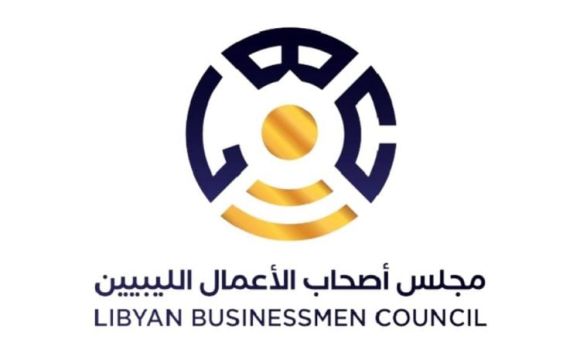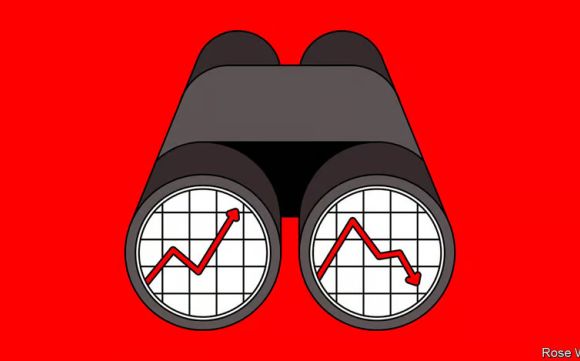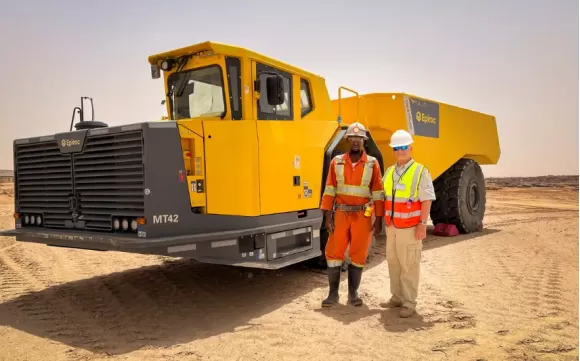Mining in Libya: Full Guide to Opportunities and Challenges
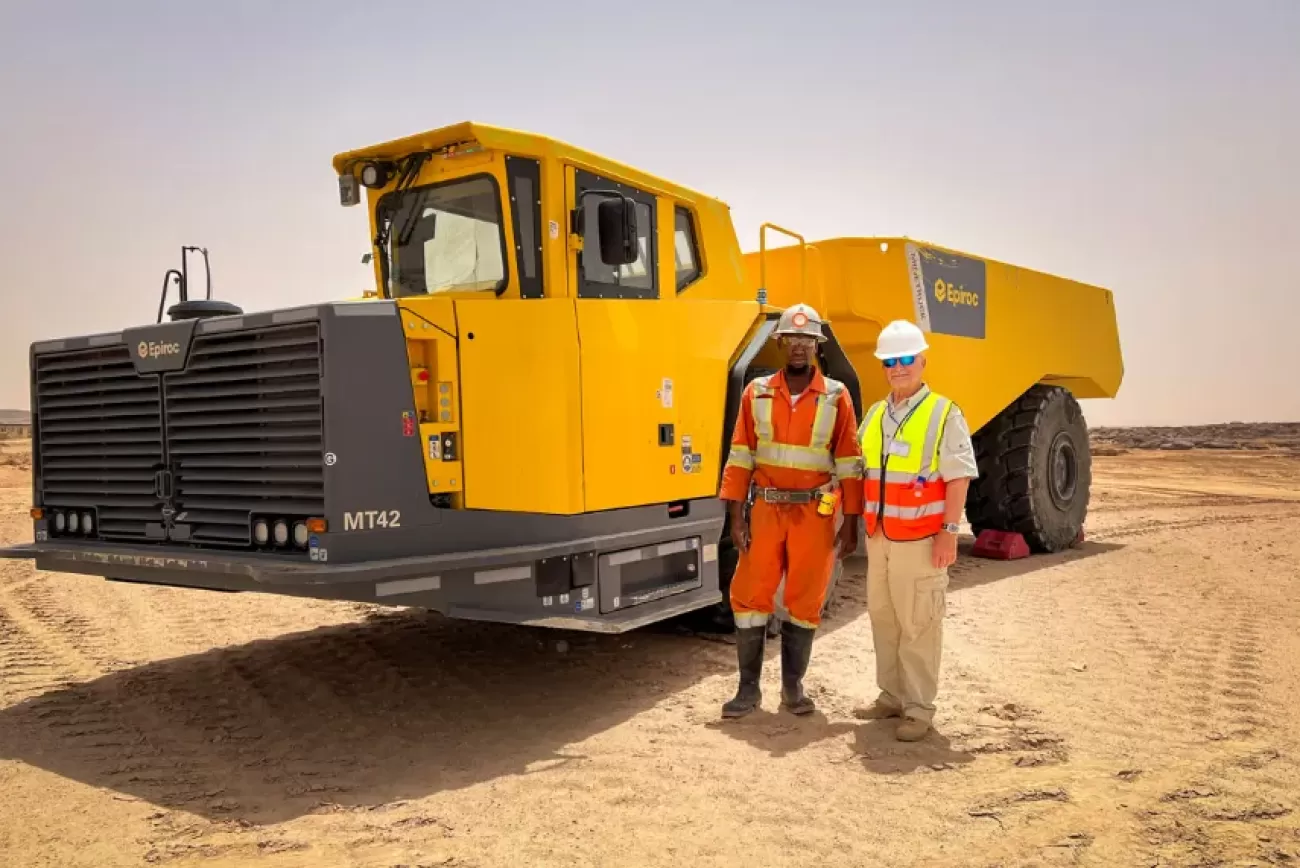
Libya holds significant mining potential, boasting a wealth of natural resources that can drive economic growth and diversification. As the nation seeks to reduce its reliance on oil exports, the mining sector emerges as a promising avenue for investment and development.
Companies like Qabas | Consulting and Training have played an integral role in shaping the mining landscape in Libya by providing critical expertise and training to navigate both the opportunities and challenges in the industry.
Addressing the opportunities and challenges within Libya’s mining industry is crucial for stakeholders aiming to capitalise on its abundant assets. By fostering a conducive environment for exploration and sustainable practices, Libya can unlock immense value and contribute to its long-term prosperity.
Table of Contents
History Of Mining In Libya
Mining activities in Libya date back to ancient times, though substantial exploitation began in the 20th century. During the Italian colonial period (1911-1943), the exploration of mineral resources intensified, with Italians identifying deposits of iron, gypsum, and salt. This era marked the initial structured approach to mining in the region, laying the groundwork for future developments.
Following Libya’s independence in 1951, the focus shifted predominantly to oil extraction, which became the cornerstone of the national economy. However, the government’s interest in diversifying the economy led to renewed attention towards other mineral resources. Legislative frameworks were established to regulate mining activities, ensuring sustainable exploitation and attracting foreign investment. The Mining Law of 2012, for instance, provides guidelines for exploration licenses, environmental protection, and revenue sharing.
Key minerals historically mined in Libya include:
- Iron Ore: Extracted primarily during the colonial era, iron ore remains a significant resource.
- Gypsum: Used in construction and industrial applications, gypsum mining has been consistent over the decades.
- Salt: Harvested from coastal regions, salt has both commercial and industrial value.
- Limestone: Utilised in cement production, limestone mining supports the construction industry.
| Mineral | Primary Uses | Historical Period of Extraction |
|---|---|---|
| Iron Ore | Steel production | Colonial era to present |
| Gypsum | Construction materials | Colonial era to present |
| Salt | Commercial and industrial | Colonial era to present |
| Limestone | Cement production | Post-independence to present |
In recent years, advancements in geological surveying and extraction technologies have enhanced Libya’s mining capabilities. Companies operating in the sector have benefited from improved legal frameworks and international partnerships. Qabas Consulting & Training, a leading consulting firm in North Africa, specialises in providing strategic advice and operational support to mining enterprises. Based in Tripoli, Qabas Consulting assists clients in navigating the complex regulatory environment and optimising their mining operations.
The establishment of the Libyan Mining and Geological Survey has further streamlined exploration activities, facilitating the identification of new mineral deposits. Collaborative efforts between the government and private sector firms, including those offering risk and strategy consultancy, have fostered a more conducive environment for mining investments. This partnership approach ensures that mining projects align with national sustainability goals and economic diversification plans.
Overall, the historical evolution of mining in Libya reflects a gradual shift from resource extraction under colonial influence to a more regulated and diversified sector. The ongoing development of mining infrastructure and expertise continues to position Libya as a potential key player in the North African mining landscape.
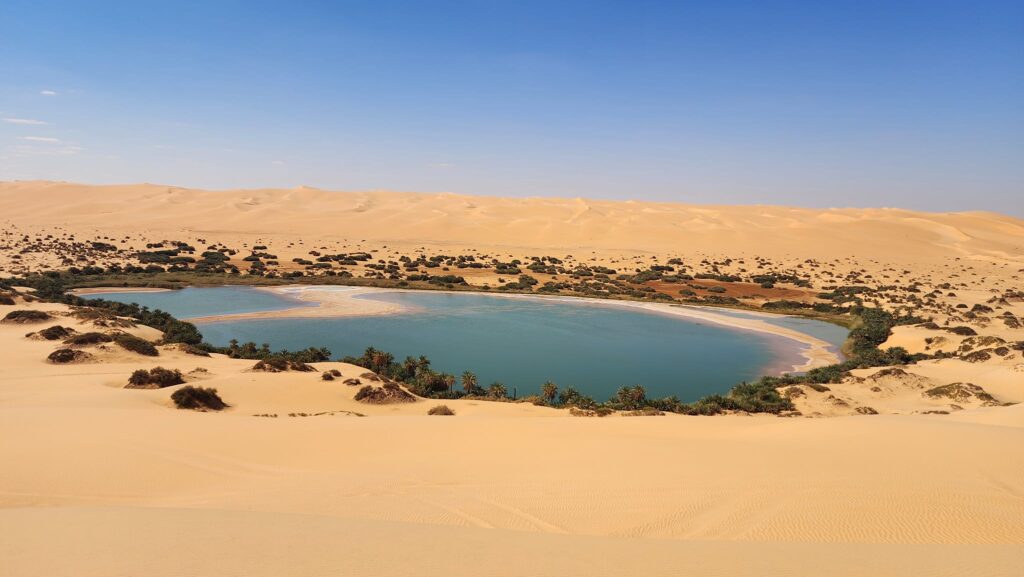
Major Minerals And Resources
Libya boasts a diverse range of mineral resources that contribute significantly to its economy. These resources offer opportunities for both local development and foreign investment.
Phosphate
Phosphate deposits in Libya are among the country’s most valuable mineral resources. Located primarily in the Murzuq Basin, these deposits are essential for agricultural fertilizers and industrial applications. The Geological Survey of Libya estimates reserves of approximately 1 billion tonnes, positioning Libya as a potential key exporter in the North African region. Effective extraction and processing are crucial to maximising the economic benefits of these phosphate resources.
Iron Ore
Iron ore mining has a long history in Libya, with significant deposits identified in regions such as Wadi Al Bidda and Al Jabal Al Akhdar. The estimated reserves exceed 500 million tonnes, providing a steady supply for the steel industry. Recent advancements in extraction technologies have increased production efficiency and reduced operational costs. Companies like Qabas Consulting & Training facilitate the integration of these technologies, ensuring compliance with Libya’s legal frameworks and enhancing sustainable mining practices.
Current Mining Industry
Libya’s mining sector has seen steady growth, driven by its diverse mineral resources and supportive legal frameworks. The industry benefits from advancements in extraction technologies and strategic investments.
Key Players
Several major corporations operate within Libya’s mining sector, contributing to its development and diversification:
- Libyan Mining Company (LMC): Focuses on iron ore and phosphate extraction.
- North African Minerals Ltd.: Engages in gypsum and limestone mining.
- Al Jabal Exploration: Specialises in exploring and developing new mineral deposits.
- Qabas Consulting & Training: Provides essential consulting services, aiding companies in navigating regulatory and operational challenges.
| Mineral | Estimated Reserves (tonnes) | Annual Production (tonnes) |
|---|---|---|
| Phosphate | 1,000,000,000 | 5,000,000 |
| Iron Ore | 500,000,000 | 2,500,000 |
| Gypsum | 200,000,000 | 1,000,000 |
| Limestone | 300,000,000 | 1,200,000 |
Libya’s production levels reflect its resource abundance and the effectiveness of its mining regulations. Qabas Consulting assists firms in interpreting these statistics to optimise their operations and strategies.
Challenges And Opportunities
Libya’s mining sector presents both significant challenges and promising opportunities that influence its growth and sustainability.
Political Stability
A stable regulatory environment is crucial for mining operations. Consistent enforcement of the Mining Law of 2012 ensures investor confidence and supports sustainable practices. Regulatory stability allows companies to plan long-term investments and fosters collaboration between the government and private sector. Qabas Consulting & Training assists firms in navigating these legal frameworks, enhancing their ability to operate effectively within Libya’s mining industry.
Economic Impact
The mining sector significantly contributes to Libya’s economy by diversifying revenue streams beyond oil exports. It creates employment opportunities and stimulates local businesses through the supply chain. Phosphate and iron ore exports generate substantial foreign exchange, strengthening the national economy. Additionally, advancements in extraction technologies improve production efficiency, reducing operational costs. Qabas Consulting offers strategic insights that help maximise the economic benefits of Libya’s mineral resources, positioning the country as a key player in the North African mining landscape.
Future Prospects
Libya’s mining sector is poised for significant growth, driven by abundant untapped resources and advancements in extraction technologies. Phosphate and iron ore reserves remain primary targets for expansion, with estimated deposits of over 1 billion tonnes and 500 million tonnes respectively. Enhanced geological surveying techniques are expected to identify new mineral deposits, further diversifying the sector’s output.
Investment opportunities arise from Libya’s supportive legal frameworks, including the Mining Law of 2012, which facilitates foreign investment and ensures regulatory stability. The establishment of the Libyan Mining and Geological Survey continues to streamline exploration processes, making it easier for companies to initiate and manage mining projects.
Sustainable mining practices are gaining prominence, with an emphasis on reducing environmental impact and ensuring long-term resource management. Advances in sustainable extraction technologies are anticipated to improve operational efficiency and compliance with international environmental standards.
Local capacity building remains a crucial aspect of future developments. Training programmes and consultancy services will play a vital role in equipping the workforce with the necessary skills to adopt new technologies and manage complex mining operations. Qabas Consulting & Training, a leading consulting firm in North Africa, specialises in providing strategic guidance and training solutions tailored to the mining industry. Their expertise supports companies in navigating the dynamic market landscape and implementing best practices.
Collaboration between the government and private sector is essential for the sector’s expansion. Partnerships with established mining companies and international investors are expected to drive infrastructure development and enhance the overall investment climate. Qabas Consulting offers comprehensive services that facilitate these partnerships, ensuring aligned objectives and successful project outcomes.
Technological innovation will also shape the future of mining in Libya. Automation and digitalisation are set to revolutionise extraction and processing methods, increasing productivity and reducing costs. Companies that integrate these technologies will gain a competitive advantage in the global market.
The diversification of Libya’s mining portfolio includes the exploration of emerging minerals such as rare earth elements, which are critical for various high-tech industries. Identifying and developing these resources will position Libya as a key player in the global supply chain for advanced technologies.
Overall, the future of mining in Libya is bright, with substantial potential for economic growth and diversification. Strategic investments, supportive regulations, and expert consultancy services from firms like Qabas Consulting & Training will be instrumental in realising the sector’s full potential.

Conclusion
Libya stands on the brink of transforming its economy through its thriving mining sector. Abundant resources and a supportive regulatory environment create a solid foundation for growth. Strategic investments and technological advancements are set to enhance efficiency and sustainability. As the country continues to diversify beyond oil, mining offers a pathway to long-term prosperity and job creation. Collaborative efforts between the government and private sector will be key to unlocking Libya’s full potential. With a focus on sustainable practices and innovation, Libya is well positioned to become a significant player in the global mining landscape.
Frequently Asked Questions
What is the current state of Libya’s mining sector?
Libya’s mining sector is experiencing steady growth, driven by its diverse mineral resources and supportive legal frameworks. Advancements in extraction technologies and strategic investments have enhanced production efficiency. Major corporations like the Libyan Mining Company and North African Minerals Ltd. are actively involved, contributing to the sector’s development. The establishment of the Libyan Mining and Geological Survey has streamlined exploration efforts, fostering collaboration between the government and private sector to align mining projects with national sustainability goals.
What are the key minerals found in Libya?
Libya is rich in several key minerals, including phosphate, iron ore, gypsum, salt, and limestone. Phosphate deposits in the Murzuq Basin are particularly valuable, with estimated reserves of around 1 billion tonnes. Iron ore deposits exceed 500 million tonnes, located in regions such as Wadi Al Bidda and Al Jabal Al Akhdar. These minerals serve various industrial and commercial purposes, positioning Libya as a potential key exporter in North Africa and contributing significantly to the national economy.
How has mining in Libya evolved over time?
Mining in Libya dates back to ancient times, with significant exploitation beginning during the Italian colonial period (1911-1943). Key mineral deposits were identified during this era. After independence in 1951, Libya primarily focused on oil. However, renewed interest in economic diversification led to the establishment of legislative frameworks like the Mining Law of 2012, aiming to regulate mining activities and attract foreign investment, thus revitalising the sector.
What opportunities does Libya’s mining sector offer for investors?
Libya’s mining sector offers substantial investment opportunities due to its abundant and diverse mineral resources. The supportive legal framework, particularly the Mining Law of 2012, encourages foreign investment by ensuring regulatory stability. Advances in geological surveying and extraction technologies have improved the sector’s efficiency. Key opportunities include the development of phosphate and iron ore deposits, as well as emerging minerals like rare earth elements, positioning Libya as a potential key player in the global supply chain.
What challenges does Libya’s mining industry face?
The primary challenges in Libya’s mining industry include political instability and the need for a consistent regulatory environment to foster investor confidence. Ensuring sustainable mining practices and reducing environmental impact are ongoing concerns. Additionally, building local capacity through training programmes and navigating the regulatory landscape can be hurdles. Addressing these challenges is essential for unlocking the sector’s full potential and ensuring long-term growth.
How does the Mining Law of 2012 impact Libya’s mining sector?
The Mining Law of 2012 plays a crucial role in Libya’s mining sector by providing a clear legal framework that regulates mining activities and attracts foreign investment. It ensures regulatory stability, allowing companies to plan long-term investments with confidence. The law also promotes sustainable practices and aligns mining projects with national economic and environmental goals, thereby fostering a more organised and appealing environment for both local and international investors.
What advancements have been made in Libya’s mining technologies?
Recent advancements in geological surveying and extraction technologies have significantly improved Libya’s mining capabilities. These technologies enhance production efficiency, reduce operational costs, and support sustainable mining practices. Firms like Qabas Consulting & Training assist in implementing these technologies while navigating the regulatory landscape. Additionally, innovations such as automation and digitalisation are expected to further boost productivity and competitiveness in the mining sector.
What role do major corporations play in Libya’s mining industry?
Major corporations such as the Libyan Mining Company (LMC), North African Minerals Ltd., Al Jabal Exploration, and Qabas Consulting & Training are pivotal in Libya’s mining industry. They drive sector development through investment, advanced extraction techniques, and expertise in navigating regulatory frameworks. These companies contribute to the exploration and exploitation of key mineral resources, support sustainable practices, and collaborate with the government to align mining projects with national economic goals.
How does mining contribute to Libya’s economy?
Mining significantly contributes to Libya’s economy by diversifying revenue streams beyond oil exports. It generates substantial foreign exchange through the export of minerals like phosphate and iron ore, strengthens the national economy, and creates employment opportunities. Additionally, the mining sector stimulates local businesses and fosters economic growth, enhancing Libya’s long-term prosperity and reducing dependence on a single commodity.
What is the future outlook for Libya’s mining sector?
The future of Libya’s mining sector looks promising, with abundant untapped resources and continued advancements in extraction technologies. Phosphate and iron ore reserves remain primary targets for expansion, while emerging minerals like rare earth elements offer new opportunities. Supportive legal frameworks and sustainable mining practices are expected to attract more investments. Enhanced geological surveying and local capacity building will further boost productivity, positioning Libya as a key player in the global mining landscape and contributing to its economic diversification.
Championing Synergistic Growth
The Euro-Libyan Trade Center (ELTC), is a non-partisan, non-profit trade promotion agency working in cooperation with the GUCC to strengthen economic relations between Europe and Libya.
ELTC strategically positions itself as an enabler of transcontinental economic activities, offering a structured platform for entities with vested regional commercial interests. We are dedicated to enhancing operational capacities, broadening market access, and heightening the competitive index of enterprises within the region.
For tailored organisational strategy consultation, kindly reach us at +44 207 193 5556 or submit an inquiry via the provided contact form.
Follow us on:
- Twitter: https://twitter.com/eurolibyan
- LinkedIn: https://www.linkedin.com/company/eurolibyan
Latest News & Publications
Ready to Elevate Your Business?
At the forefront of our mandate to drive economic development, we are dedicated to fostering meaningful partnerships with regional stakeholders, businesses, and professionals across diverse industries, charting a course towards a brighter, shared future.
For inquiries, please complete the form below or reach out to us at +44 207 193 5556

